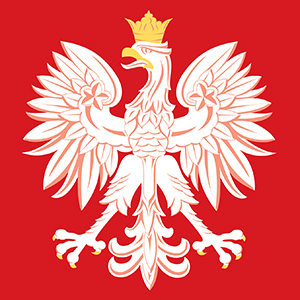- Home >
- WIADOMOŚCI >
- Świat
Former Polish Prime Minister Takes Over as European Council Head
01 grudnia, 2014
Sets directions for actions; ensures the preparation and continuity of the work of the European Council; chairs meetings of EU heads of state; and presents reports on such meetings to the European Parliament – these are the principal tasks of the new President of the European Council - Donald Tusk
“I come to Brussels from a country that strongly believes in the sense of a united Europe. Eighty percent of my countrymen deeply believe in the sense of the European Union and seek no alternative,” said Donald Tusk shortly after his election as the new President of the European Council. He added that Polish heritage and experience can become a very significant source of energy that the EU needs.
The office of the President of the European Council was established by the Treaty of Lisbon in 2009. In the same year, the Belgian politician Herman Van Rompuy was appointed the first Council head, a position he will occupy until 30 November 2014.
The European Council elects its President by a qualified majority of votes for a term of two and a half years, renewable once.
The EU leaders chose Donald Tusk on 30 August 2014. The former Polish prime minister will be also presiding over eurozone countries’ summits.
Prior to the Treaty of Lisbon, the Council meetings were chaired by a head of state which was holding the six-month rotating presidency of the Council of the European Union.
The European Council, an institution whose work will be overseen by Donald Tusk, defines the general political directions and priorities of the Union.
Apart from the President, the Council consists of the heads of state or government of the Member States, and the President of the European Commission. The High Representative of the Union for Foreign Affairs and Security Policy (currently Federica Mogherini of Italy) also takes part in its work.
The Council comes together at least twice every six months. However, the President may convene a special meeting when the situation calls for this. An example of such a situation is the Ukraine crisis, which has prompted the Council to meet several times over the past months.
Decisions of this body are usually taken by consensus. In some cases, the Council adopts decisions unanimously or by qualified majority, depending on what the Treaty provides for.
As a rule, the European Council meets in Brussels, at the Justus Lipsius building.
Established in 1974, the European Council was intended to serve as an informal forum for discussions between heads of state and government. However, it soon came to set goals for the Union in all fields of its activity. The 1992 Treaty of Maastricht gave the Council a formal status, defining its function as “providing the Union with the necessary impetus for its development and defining the general political guidelines thereof.”
The European Council became one of the seven institutions of the EU on 1 December 2009, with the entry into force of the Treaty of Lisbon.
Donald Tusk was born in Gdansk on 22 April 1957. A 1980 history graduate of the University of Gdansk. Before that, an opposition activist and co-founder of the Solidarity Student Committee. Co-founder and, since 2003, leader of the Civic Platform political party. The longest-serving Prime Minister of the Third Republic of Poland, in office continuously from 16 November 2007 until 22 September 2014, when he stepped down after being elected President of the European Council.
Donald Tusk will chair the first European Council meeting during his term on 18 December 2014.
For more information about the European Council, please visit its website (http://www.european-council.europa.eu/home-page.aspx?lang=pl).
 MFA Press Office
MFA Press Office
KATALOG FIRM W INTERNECIE

